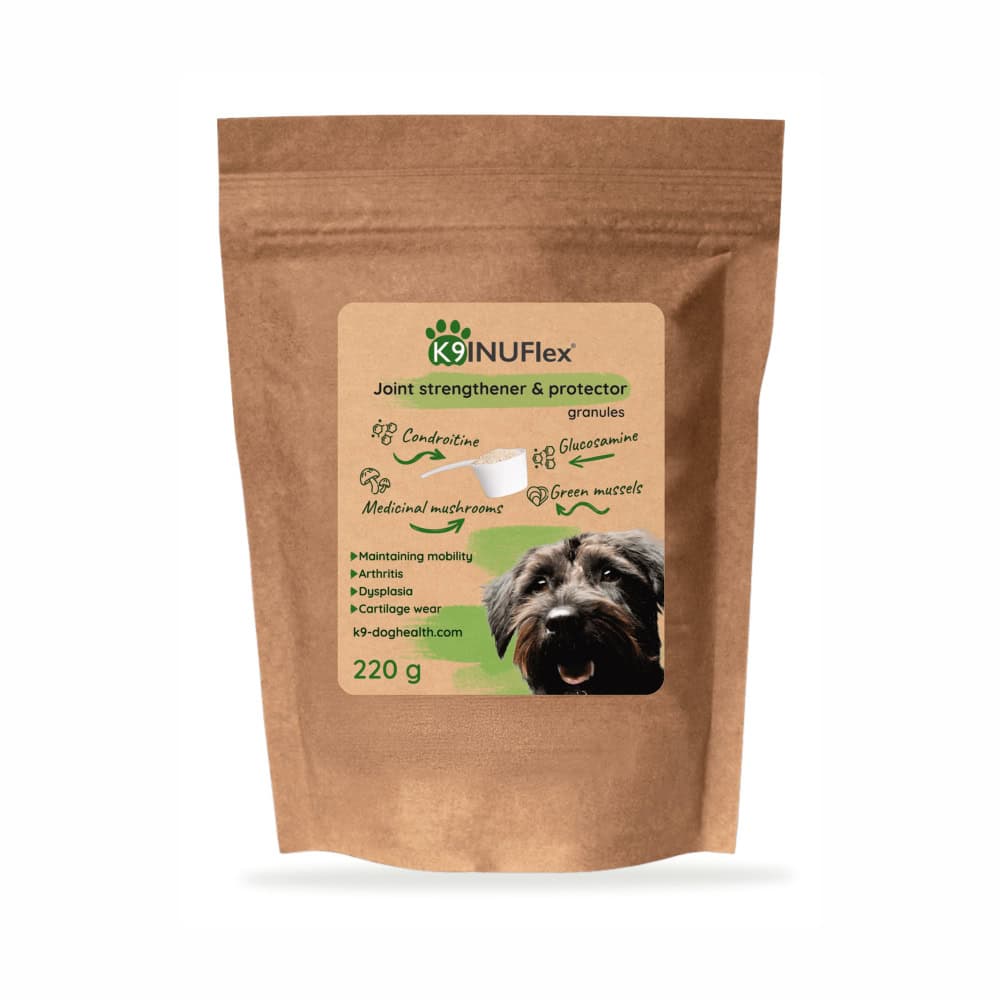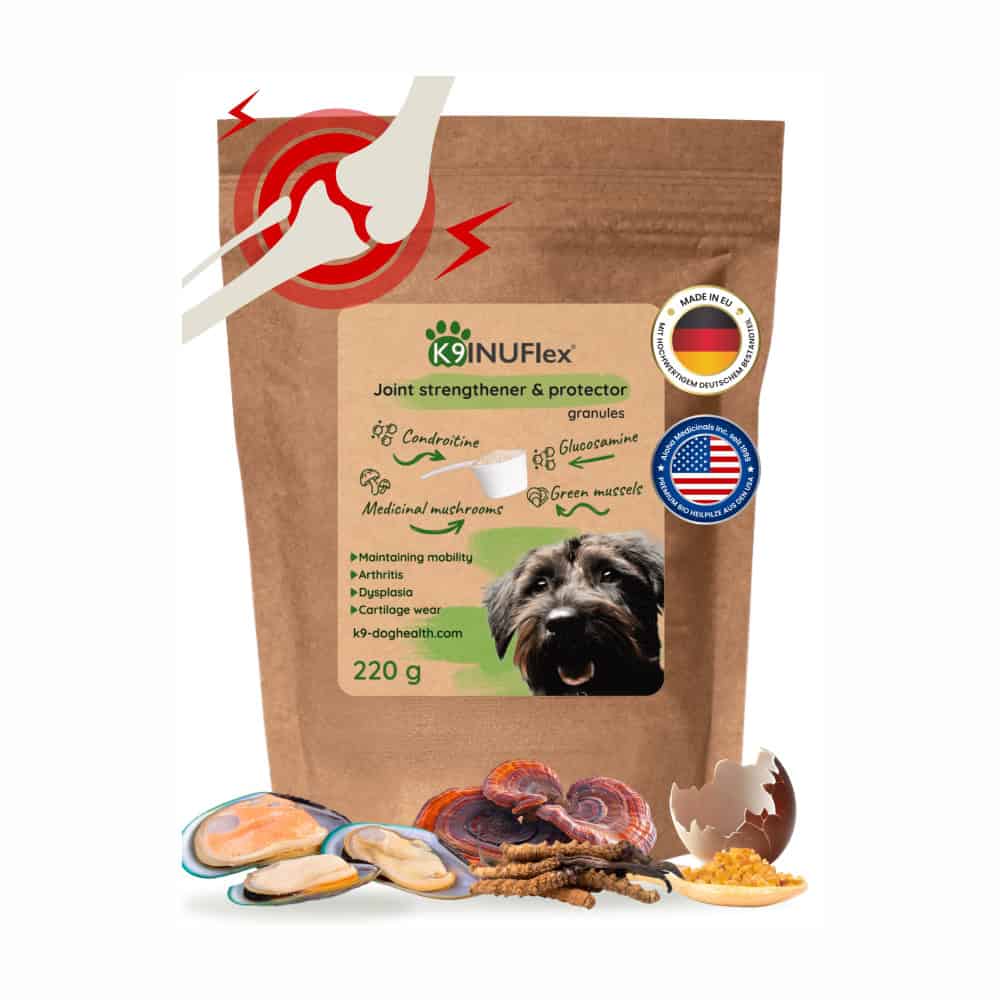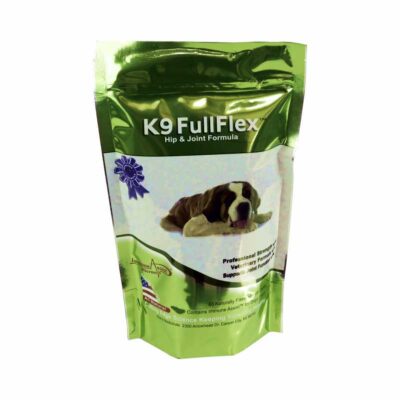The health of a dog’s joints is essential for maintaining a long and active life. Joint problems, such as arthritis or cartilage degeneration, can not only cause significant pain and limited mobility but also drastically reduce your dog’s overall quality of life.
Over time, especially in large or highly active dogs, joints are subjected to increased stress, which can lead to wear and tear. Using appropriate joint supplements can help prevent or alleviate these issues while supporting healthy movement and overall well-being.
Signs That Your Dog May Need Joint Support
Early detection of joint problems is crucial for effective treatment. Watch for the following signs:
- Stiff movements: If your dog has difficulty getting up or seems to move stiffly.
- Limping: Any degree of limping could indicate joint problems.
- Reduced activity: If your dog is less willing to play, walk, or tires more quickly than before.
- Pain indicators: Whining, licking, or chewing at the affected area.
Effective Ingredients in Joint Supplements for Dogs
Joint supplements often contain specific nutrients that directly support joint health. Here are the most important ingredients:
- Glucosamine: Aids cartilage regeneration and reduces inflammation.
- Chondroitin sulfate: Improves cartilage water retention, enhancing flexibility.
- Green-lipped mussel extract: Rich in omega-3 fatty acids and glycosaminoglycans, which strengthen joints.
- Hyaluronic acid: Increases joint fluid viscosity, enabling smoother movement.
- Hydrolyzed Eggshell Membrane (ESM): Contains collagen, elastin, and other essential nutrients that promote joint health, reduce stiffness, and enhance cartilage repair.
- MSM (Methylsulfonylmethane): A natural anti-inflammatory and pain reliever.
Supporting Evidence:Research published in PLOS ONE highlights the efficacy of glucosamine and MSM in reducing pain and inflammation associated with canine osteoarthritis (PLOS ONE, 2021).
How Do These Ingredients Work?
Glucosamine and chondroitin support cartilage repair, while green-lipped mussel extract and MSM reduce inflammation. Hyaluronic acid ensures proper lubrication of joints, which is vital for pain-free movement.
When Should You Give Joint Supplements to Your Dog?
- During puppyhood: Supports healthy joint development during rapid growth phases.
- In adulthood: Ideal for active or working dogs whose joints are under greater strain.
- In senior years: Helps to ease age-related joint wear and inflammation.
Myth: Joint Supplements Are Only for Older Dogs
This is not true. Joint supplements are also beneficial for young, active dogs, helping to protect joints and prevent injuries.
Homemade Joint-Boosting Diets
If you prefer natural remedies, the following homemade foods can support your dog’s joints:
- Bone broth: High in collagen and glucosamine, promoting cartilage regeneration.
- Salmon oil: Contains omega-3 fatty acids that have anti-inflammatory properties.
- Turmeric mix: Turmeric has natural anti-inflammatory effects.
Specific Conditions and Joint Supplements
- Managing Arthritis and Osteoarthritis:
Arthritis and osteoarthritis are common in older dogs. A combination of glucosamine, chondroitin, and MSM can significantly reduce pain and improve mobility.
Supporting Evidence: A study in Frontiers in Veterinary Science emphasizes the importance of joint supplements in managing osteoarthritis symptoms (Frontiers in Veterinary Science, 2020). - Joint Supplements for Sporting Dogs:
For sporting or highly active dogs, preventive use of joint supplements can help avoid injuries and maintain mobility over the long term.
Dosage Guidelines for Dogs
The dosage of joint supplements depends on your dog’s weight and health condition. Most manufacturers provide detailed instructions on the product packaging. Gradually increasing the dosage is often recommended, and consulting your vet is essential for determining the optimal amount.
How to Start Using Joint Supplements
- Consult Your Veterinarian: They can help select the right supplement and determine the correct dosage.
- Introduce Gradually: Start with a smaller dose to let your dog’s body adjust to the supplement.
- Monitor the Effects: Observe how your dog’s movement and activity improve over time. Positive effects are typically noticeable within a few weeks.
- Maintain Regularity: Consistent use is key to achieving lasting results.
How to Choose the Right Joint Supplement
Choosing the right joint supplement is critical. Here’s what to look for:
- Quality ingredients: Avoid products with artificial additives or preservatives.
- Reputable manufacturers: Only purchase from trusted sources.
- Veterinary consultation: Always discuss with your vet before introducing a new product.
FAQs – Frequently Asked Questions
- How Do Joint Supplements Work for Dogs?
Joint supplements provide nutrients that help maintain joint flexibility, reduce inflammation, and support cartilage regeneration. - How Long Does It Take for Joint Supplements to Show Results?
Improvements are typically noticeable after 4-6 weeks of consistent use, though this varies based on your dog’s condition and the supplement used. But some supplements can show noticeable results in a shorter period of time. - Can I Give Joint Supplements to My Puppy?
Yes, puppies can benefit from joint supplements, especially large breeds. Always consult your veterinarian first. - What’s the Difference Between Tablet, Powder, and Liquid Joint Supplements?
– Tablets: Easy to dose but may be challenging for picky dogs to consume.
– Powders: Can be mixed into food and are less noticeable.
– Liquids: Ideal for picky eaters and quick absorption. - Can I Use Joint Supplements Preventively?
Yes, joint supplements are great for preventing joint problems, particularly in active or sporting dogs. - Which Diet Enhances the Effects of Joint Supplements?
A diet rich in omega-3 fatty acids (like salmon) and collagen sources (like bone broth) complements joint supplements and boosts their effectiveness.
Summary
Joint health is essential for your dog’s long, happy, and active life. By recognizing early signs of joint issues and addressing them with effective supplements, such as glucosamine, chondroitin, green-lipped mussel extract, and hydrolyzed eggshell membrane (ESM), you can significantly improve your dog’s mobility and quality of life. Incorporating homemade joint-supporting diets and consulting with your veterinarian ensures that your dog gets the best care tailored to their needs. Whether as a treatment or a preventive measure, joint supplements are a key investment in your dog’s overall well-being.
Take action today to keep your furry friend healthy and active for years to come!
For more interesting articles about the importance of cartilage strengthening in dogs or living with dogs.
References
- PLOS ONE: Efficacy of a dietary supplement in dogs with osteoarthritis: A randomized placebo-controlled, double-blind clinical trial. Read here.
- Frontiers in Veterinary Science: Risk Factors for Canine Osteoarthritis and Its Predisposing Conditions. Read here.
- MDPI Animals: Undenatured Type II Collagen (UC-II) in Joint Health and Disease: A Review. Read here.
- MDPI Animals: Glucosamine and Chondroitin Sulfate: Is There Any Scientific Evidence Regarding Their Effectiveness in the Management of Osteoarthritis? Read here.
- dvm360: Nonpharmacologic management of canine osteoarthritis: Part 1. Read here.





